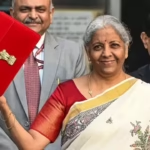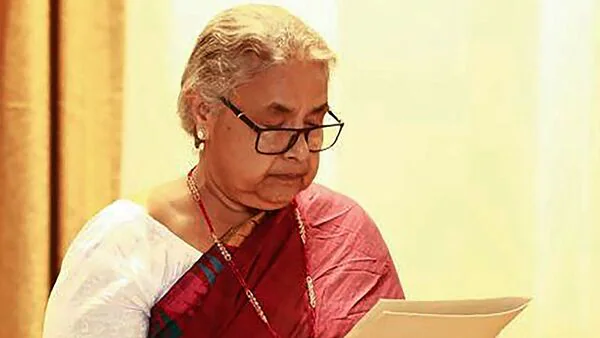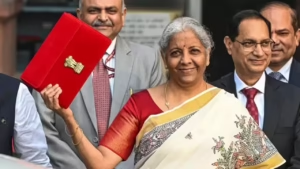Kathmandu: In a historic event and moments before we went to print, Nepal named former chief justice Sushila Karki as interim prime minister, after violent protests swept away the former government to demand political reform after crime and corruption allegations reached a new high in the country. At age 73, Karki has become the first woman to lead Nepal, a country that must still fight against poverty and for the establishment of full democratic institutions.
Karki’s appointment occurred after a week of rallies that rocked the Himalayan Republic, resulting in over 50 deaths and dozens of injuries after confrontations with security forces. Demonstrators were outraged after the prime minister’s sudden announcement to block access social media sharing sites, thus stifling online expressions of dissent, served to further incite anger among the already inflamed population. Although the order was rescinded on Monday, the grew even angrier as the day turned to night.
As violence ramped up and on Tuesday full blown uprising erupted as enraged marchers invaded the capital and set parliament and a string of government buildings ablaze. Prime minister K.P. Sharma Oli resigned after losing the support of the people and the political class.President Ram Chandra Poudel called on Karki to take on the role of head of an interim administration after talks with leaders of the protests and legal experts. Karki was sworn in at a short ceremony on Friday night.
Karki’s new position now puts her in the unenviable position of calming the streets and trying to bring Nepal back to normal. Parliament has been dissolved and general elections will take place on 5 March next year. Karki is expected to announce her cabinet in the coming days and her mandate is to restore law and order, oversee the rebuilding of the burned down government buildings, and start discussions with the unhappy young protesters who have become the face of the uprising.
Karki’s appointment is viewed as a compromise between Nepal’s political elite and the protest leaders, with the deal apparently done with the army chief as broker. Her reputation for probity struck a cord with Gen Z activists, who had led the protests through online campaigns and street protest. Many Gen Z activists saw her swearing in as a symbolic win and described her appointment as providing a clean slate in a country which was being held hostage by entrenched elites.
Karki visited one of the sites of protest in Kathmandu where violence resulted in loss of life earlier this week, meeting the families of victims and survivors who are hospitalized. Her efforts resonated with many demonstrators who see Karki as someone who was not implicated in the corruption scandals that have plagued the Nepali political class.
Karki was born into a family with deep roots in the Koirala family, which is influential in the Nepali Congress, began a career in law, and became Nepal’s chief justice in 2016. She has mentioned her husband who is also a politician, Durga Subedi, has helped support her journey from being a lawyer to the highest judicial position in Nepal, but it is important to note that Karki’s judicial career was not without controversy as she had an impeachment motion lodged against her during her time and was chief justice for 11 months. Karki was able to maintain her image of a reformist.
While Karki presents a clean and untainted image, her interim government may face an incredible challenge. Aside from Batting down rioting and putting unrest to rest, she also has to assure citizens that Nepal’s fragile democracy won’t regress. Anything short of credible elections, successfully prosecuting claims against those related to violence, and the decades-long anger against corrupt practices and nepotism will be hard for her to lead over the coming months.
The protests that brought her into power were never just about the ban on social media. The movement had been powering itself primarily on the virus “nepo kid” campaign, which had gone viral for many weeks prior, as protestors on various social platforms shared the opulent lifestyle of some politicians’ adult children who were now in power, and the outrage of people in a country enduring hardship was palpable in March. By banning WhatsApp, Facebook, Instagram, and, in all, 23 platforms, as authorities scattered their means of digital movement, it appeared they were attempting to quell the swelling social movement. Instead, the ban was the spark that ignited Nepal’s most significant political crisis in decades.
As Nepal waits apprehensively for the next steps, soldiers continue their patrols of the troubled streets of Kathmandu. For many young protestors, Sushila Karki is the hope of a cleaner and more accountable political future for Nepal. Karki has now been entrusted with the interim government. Yet, their provisional government will be under the scrutiny of voters as they prepare to head to the polls in March. Whether they can seize an acute crisis moment as a generative opportunity for renewal may very well determine the future course of democracy in Nepal for years to come.












More Stories
Operation Aaghat: Over 150 Criminals Arrested by Delhi Police; Weapons, Liquor, & Ganja Seized
India’s “Boycott Thailand” Movement Trends Online Over Demolition of Vishnu Statue at Thailand-Cambodia Border
Indian Railways Increases Train Fares From Tomorrow – Here’s a List of Tickets That Are More Expensive